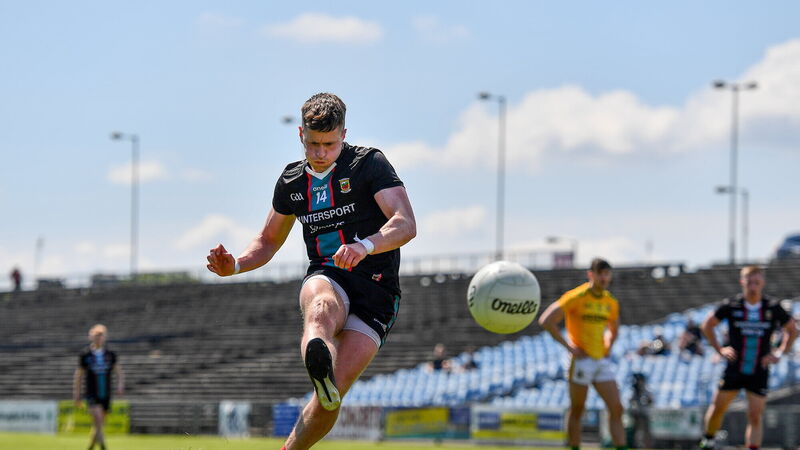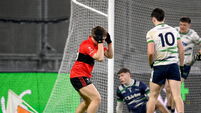John Fogarty: Centurion Cillian O'Connor is the most important forward in football

Cillian O'Connor of Mayo shoots to score his side's first goal from the penalty spot during the Allianz Football League Division 2 North Round 3 match between Mayo and Meath at Elverys MacHale Park in Castlebar, Mayo. Photo by Sam Barnes/Sportsfile
If memory serves us correctly, Donegal were one of the first progressive counties to make a fuss about their players reaching a century of National League and Championship appearances.
Infamously, Colm McFadden was presented with an acknowledgment of his achievement after Armagh had dismantled the visitors by nine points in a 2010 qualifier in Crossmaglen.










